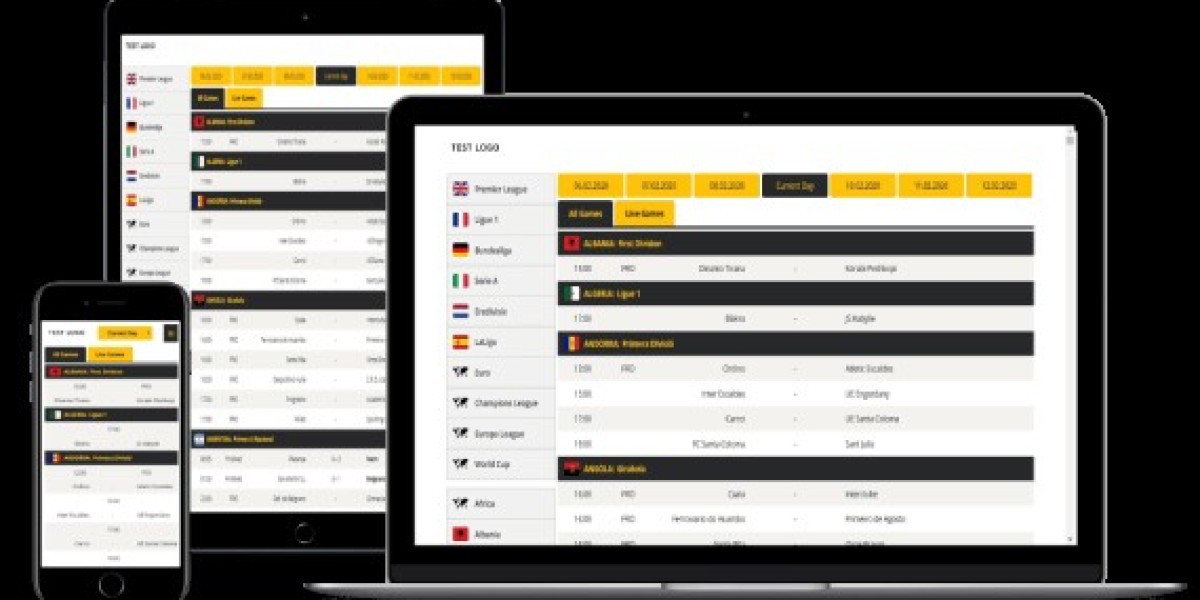Introduction to APIs in Sports Data
APIs have transformed how sports data is accessed, processed, and delivered.
For leagues, teams, and fans, APIs provide real-time data on games, player statistics, and match outcomes.
Understanding IPL API Data
The IPL (Indian Premier League) API delivers real-time data about matches, player stats, scores, and league standings.
It offers developers access to historical match data, live scores, and detailed player performance.
IPL API data can be integrated into apps, websites, and sports platforms for live updates and analytics.
Features of IPL API
Live Scores: Provides real-time match updates, including ball-by-ball commentary.
Player Stats: Access to detailed player data, including batting and bowling averages, strike rates, and career records.
Team Information: Includes rosters, team performance, and game schedules.
Match Summaries: Post-match analysis and detailed breakdowns of critical events during the game.
Historical Data: Comprehensive access to past IPL seasons, including match results and tournament standings.
Applications of IPL API Data
Fantasy Sports Platforms: Real-time stats help fantasy sports apps update user scores as matches unfold.
Sports News Websites: Seamlessly integrate live scoreboards and player performance analytics.
Betting Platforms: IPL API data is vital for providing users with up-to-the-minute match updates and predictions.
Mobile Apps: Enhance sports apps with real-time notifications about match progress, player injuries, and team performance.
Advantages of Using IPL API Data
Real-Time Updates: Ensures users stay informed with the latest scores and developments in IPL matches.
Comprehensive Data: Live and historical data access allows for a rich user experience.
Customization: Data can be tailored to specific user needs, whether for betting, news, or fan engagement.
Enhanced User Engagement: Integrating IPL API data keeps users engaged, providing a dynamic experience across multiple platforms.
What Are Sports Data Feeds?
Sports Data Feeds refer to streams of information delivered in real time from live sporting events.
They continuously update match outcomes, player stats, and other vital metrics.
Sports data feeds can be integrated into apps, websites, or broadcast channels to enhance user engagement.
Types of Sports Data Feeds
Live Score Feeds: Deliver ongoing scores, events, and player performance updates during matches.
Player Stats Feeds: Detailed data about player statistics, including historical performance and in-game metrics.
Match Events Feeds: Provides information about critical events like goals, wickets, fouls, or substitutions.
Betting Data Feeds: Specific feeds for betting platforms, offering odds, match predictions, and results.
Historical Data Feeds: Archive of past match results, player records, and league standings.
How Sports Data Feeds Work
Real-Time Data Collection: Data from live events is collected via various channels, such as sensors, cameras, and live reporters.
Data Processing: This raw data is processed and structured into readable formats for APIs to distribute.
Data Distribution: APIs distribute the processed data to various platforms like mobile apps, websites, and broadcast services.
Benefits of Sports Data Feeds
Instantaneous Updates: Real-time delivery keeps users informed and engaged with ongoing events.
Versatility: Sports data feeds cater to different needs, including fantasy sports, betting, and media broadcasting.
Customization: Feeds can be tailored to specific sports, leagues, or individual player statistics.
Automation: Automated data feeds reduce the need for manual input, ensuring speed and accuracy.
Use Cases of Sports Data Feeds
Fantasy Sports Platforms: Users can make real-time decisions based on player performance and live match updates.
Broadcasting: Enhance live commentary with real-time stats and event breakdowns.
Mobile Sports Apps: Deliver instant match updates, player stats, and live event notifications to users.
Betting Platforms: Accurate data feeds ensure betting odds and predictions are updated in real-time, increasing the platform's reliability.
The Role of APIs in Major League Soccer (MLS)
The Major League Soccer API delivers real-time data on MLS matches, player stats, league standings, and more.
Like other sports APIs, it provides detailed information that can be integrated into apps and platforms to enhance user experience.
Developers can access data on live matches, player transfers, and team rosters through the MLS API.
Features of Major League Soccer API
Live Match Updates: Provides real-time scores, game stats, and commentary for all MLS matches.
Player Information: Detailed data on players, including performance metrics, injuries, and transfers.
Team Stats: Comprehensive team information, including rankings, match history, and schedules.
Match Summaries: Post-game analysis and statistics, including shots on goal, fouls, and possession stats.
Historical Data: Access to previous seasons, providing a rich archive of match results and player performance.
Applications of Major League Soccer API
Fantasy Soccer Platforms: Real-time data integration helps users make informed choices for fantasy leagues.
Sports Betting: Accurate and up-to-the-minute data provides insights for betting odds and in-game betting.
Mobile Apps: Deliver live scores, player stats, and game summaries directly to soccer fans through mobile notifications.
News Websites: Seamlessly integrate live scoreboards, player news, and match updates into soccer-related news content.
Advantages of Major League Soccer API
Real-Time Accuracy: Keeps users updated with live match scores, player stats, and other essential metrics.
Comprehensive Data: Provides historical and current data, enriching the user experience.
Customizable Integrations: Developers can customize the data delivery to suit various platforms like apps, betting services, or news portals.
Enhanced Fan Engagement: Real-time data on games and players keeps fans involved, offering a dynamic and interactive experience.
How APIs Deliver Sports Data Feeds
Data Collection: Real-time data is gathered from multiple sources, including live game sensors, reporters, and video feeds.
Data Processing: The collected data is processed and structured into an easily accessible format, such as JSON or XML.
APIs for Data Distribution: The processed data is then distributed via APIs, allowing developers to integrate it into their platforms.
User Platforms: The data is displayed on user-facing platforms such as apps, websites, or betting platforms, providing real-time updates.
Importance of Real-Time Sports Data Feeds
Fan Engagement: Real-time updates keep users connected to the action, whether they’re watching live or following remotely.
Monetization: Platforms using sports data feeds can monetize by providing premium services like live updates, exclusive player stats, and in-depth match analysis.









